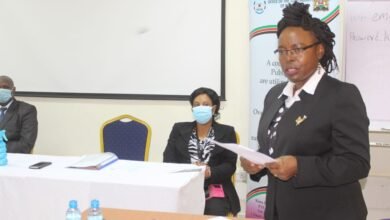
The Kenya Revenue Authority (KRA) says it will now leverage the digital economy to widen its tax bracket.
According to the authority, the digital economy is a vibrant market that is fast growing with development in technology and presents an opportunity to broaden its tax collection if proper policies and regulatory measures are put in place to ensure that achieves the intended purpose and does not run down businesses.
“One of the principals of tax policy is the issue of neutrality, meaning that you tax businesses the same way. Rules are being made to ensure that we tax businesses that are not I the country but they create value, in terms of tax policy we need to remodel our rules that govern the taxation of digital economy.” Said Maurice Oray Deputy Commissioner in charge of Policy at KRA
Furthermore, KRA says that it has made an effort to digitize its processes through programs such as itax.
“The committee that is working on harmonisation of taxes is to focus and ensure that taxes across EAC in terms of base and rate are harmonised and that includes digital taxation, and the way we tax digital transactions in Kenya Is the same way it’s done in Tanzania, Uganda, Rwanda, Burundi and South Sudan”
These sentiments were expressed at Kenya revenue authority’s 5th annual tax summit under the theme tax simplification and digitization for economic growth.
KRA has kicked off the search for a technology service provider to install a monitoring and payments system that is aimed at tracking and auditing transactions between both local and international merchants and their customers.
The tax collection system will entail an integrated payment gateway solution to identify and authorise payments through the settlement of data to and from merchants’ online portals to their banks.
The tax summit which draws to a close on the October 17 is part of taxpayers month that is observed every October.





